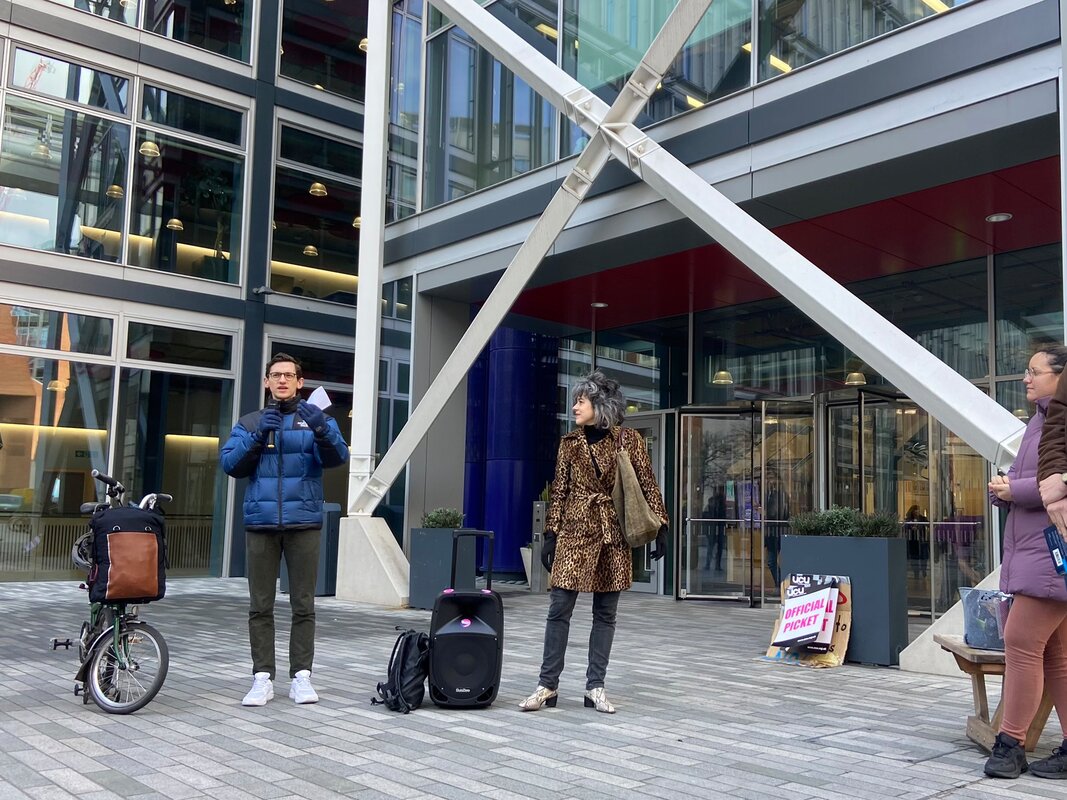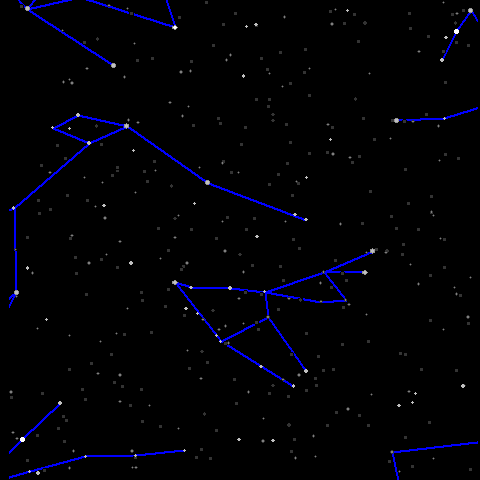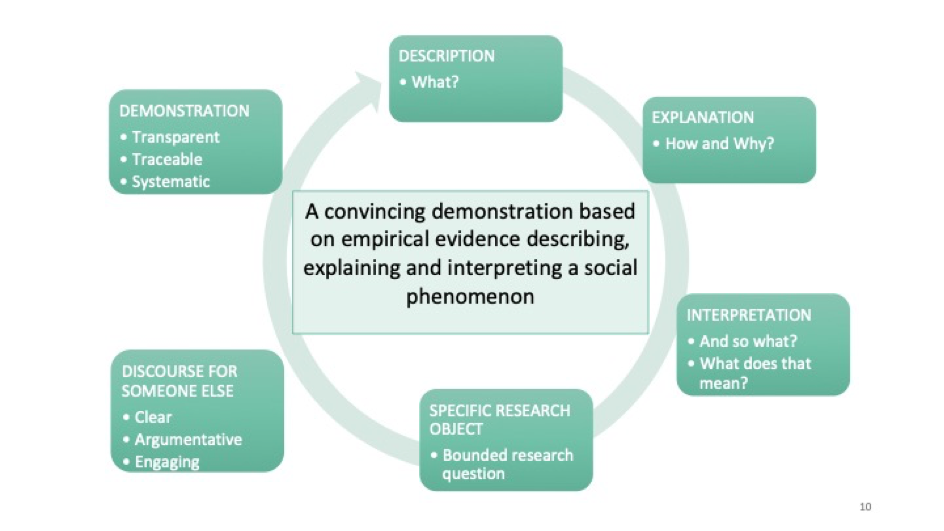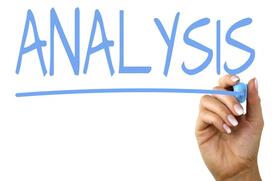Poems of resistance - Writing poetry about frustrations, hope, and standing up against the system3/15/2023 A poem ain't gonna change the world. But learning how to create and be comfortable doing it will. Change does not come by repeating what was, but by birthing something new. Creation is a god-like act. It does not just happen. Life is busy, tiring, pressuring. It takes time and energy to carve into our schedule space for creativity. To foster this feeling, to nurture it, so it can nurture us in return and pour over other dimensions of our life and back into the world. Avoiding the social reproduction of the world requires also standing up against inertia, the masses, structural constrains. It requires some level of Courage. There is always some level of risk involved for those willing to put their head above the water to push for social change. Courage to stand up on our own against what is and what needs to change does not happen in a day. We need to learn how to be navigate our fear, work with it, keep pushing in spite of it. Standing in front of a crowd, in public, reading a poem we have created, for many is something out of our comfort zone. Pushing against our fear, one public display of creativity at a time, helps us grow in confidence. Standing on our own, yet not really alone. To curate a space and structure some time for our students to put these ideas into practice, Alex Stoffel and I organised a poetry activity on Thursday 16 2023 as one of the teach-outs taking place at the London School of Economics during the 2023 strikes over pensions and pay This is how we introduced the activity to the students: "We thought this would be a wonderful opportunity to reconnect and spend some time together outside of the regular setting. The objective is to share our frustrations and hopes for the higher education system. Everyone is invited to come (please don't hesitate to invite others!) and should bring along either poetry you have created or that others have written. The poetry doesn't have to be directly about academia; it can be related to any themes of resistance and creating a different future, individually or collectively." The activity was completely voluntary. To help students prepare themselves and give them a boost of confidence, we organised a get-together a few days before. The event was a blast. As one of the participants shared on Twitter, it was truly a "magical" experience. Yes, we did drop "some nasty rhymes" but it was also about putting ourselves out there, standing up together and inspiring each other. As another of the participants shared after the event: "Overall, it was simply one of the best things .... to be part of something much bigger than our everyday, mundane life :)" Because this is not something many of us had done before and in the context of the global classroom, where many of our students face pressure regarding censorship from their home country, VISA and scholarship status, we aimed for the activity to be as inclusive as possible. We shared the following with the students prior to the event:
- Alex, I and the students who volunteer can read the poems of the students who want to write poems anonymously; - I invite all students who have written poems to send them to me after the event so I can publish them as a blog post on my methodological artist blog. Those who want will be able to publish them anonymously; - Some students suggested coming up with masks/hats to avoid facial recognition. This would be visually very powerful, especially if a group of you do it. Please don’t feel pressured to do it, but if some of you want to organise a masked intervention you are very much welcome. - Whether or not you write poems, you are always welcome to join the teach-out on Thursday 16 as part of the audience." As one of the students who contributed to the event anonymously commented: "Showing solidarity with academics during the strike actions in such creative forms is memorable. I find the teach-outs and marches very politically awakening. As an international student, it's a precious opportunity to learn how the higher education system works and how the flawed mechanism can affect academics and students. Having been living in an authoritarian context before coming to study in the UK, I haven't had any chance to join a march and protest for myself and make an appeal. I cherish expressing solidarity with you all." Below are the poems of the students who volunteered to share them on the blog-post. Some of the poems come with a bit of context (at the end of the poem) that the students wanted to share with us, for example when the poem is centred around a specific reference to LSE or their experience. I hope you'll enjoy reading the poems and participating in this creative journey as much as we did 😍 In the teaching pot of the crazy weird witchBy Audrey Alejandro, the Methodological Artist Here is the video of me reciting the poem the day of the event. Thank you Pilar Elizalde for the recording. Once upon a time in a land far way In the wild I was born. Through the earth, through the air, Through the shadows, through the sea Life and work got me here, in the intellectual concrete Some call L.S.E. Hired I became. Cooking for my students Prepar-ing for them my wee-kly potion: 1 Litre of analytical wit to sharpen the mind 1 cup of courage to help grow a strong spine 1 spoon of unknown for the imagination A few words of magic for the transformation How sweet is the taste of the witchy witch poison. I’m cooking, I’m cooking … but something‘s going on. Do you hear anything? Let me pay attention. A mutter in the sky, a murmur in my heart. I hear a word: despair. Where is it coming from? Thousands of admin files laced in regulations. They shriek. Neo-liberal eyes, red and dull, modern abomination. They speak: “Her ideas are quite weird She doesn’t brush her hair. She wears too much colour. She won’t go anywhere.” Witch-hunters in disguise. They come. They try to hunt me down. But what did I expect? I signed my name in the book of the beast after all, didn’t I? Dehumanisation monster, factory for the mind, All that for my pay-check. Life undead, depletion, exhaustion spells. Where can I go for help? I look inside. Sekhmet, Hecate, Chhinnamasta, Cerridwen. Goddess of wisdom and change. We call upon you, I the crazy weird witch and the children of the new. Give us courage. Give us strength. Show us the path and guide us through. Silence. Then the goddess softly says: “Rise poets. Rise. Rise from these dreadful ashes. I bless a reform for this institution. Consume none. Provoke many. Rise into the brave inspiring adults you were always meant to be.” Beaver the Believer, Leave her? You Deceiver! By Miyuki Shiraki Beaver the weaver See her build and burrow Strong-willed and thorough Thrilled to claim space As if there’s no tomorrow Meagre branches See her She dances Bring the twig Tease her She advances Mapping margins Stacking in the gardens Hard work pays off Believe her She’s Beaver the believer Then In the Eden Where the beaver is eager Time stops A sudden seizure Crime stomps On her future The beaver feels weaker Annoyed and devoid With a void deployed Delusional is the institutional Imputable, not excusable Today, a long wait The days elongate It’s like an endless hike This current strike Casualisation, pay gaps, and withdrawing from Stonewall Deceiver, can’t you see her? Why leave her? Keep her, Beaver the believer “To know the causes of things” You know what dramas that bring, Deceiver, you leave her Beaver and the teacher Teach her, the creature, Beaver the believer To be the achiever Context: The beaver is LSE mascot. The poem uses the beaver as a metaphor to express what it feels like to be a willing and hardworking students in the current system. Remould It Nearer to the Hearts Desire by Walter Schutjens And the men who hold high places Must be the ones who start To mould a new reality Closer to the heart But now high places have high salaries And thus think themselves apart These high places are these glass towers That grow further from the heart LSE's founders forged into much older stained glass And thus, unto us impart A demand for social justice through knowledge Made directly from the heart Knowledge derived from knowing the cause of things our motto: Rerum cognoscere causas if you're smart Knowledge of real working conditions Using both our heads and heart To move away from this progressive political legacy And let neoliberal technocrats freely play their corruptive part Would mean losing our direction and humanity The substance of the heart Their casual casualization of effective education Will force future generations to restart In their slow progress to freer societies That lie nearer to the heart This management is an affront to LSE's history And yet they seem to make it into their art To laissez fairly undermine its very foundation And drive stakes through this beaver’s heart Context: This fact may strike people as unlikely nowadays, but it is no coincidence that the same people who founded the Labour Society were also the founders of our LSE. These people were the Fabians and they inscribed in its very motto the critical dictum that it retains today: rerum cognoscere causas 'know the cause of things', this dictum is in its nature progressive at it promotes understanding of society by its roots, much like the method of the reformist socialist project they initiated in the early 20th century. In the back of the Shaw Library on the 6th floor of the Old Building one can find a stained glass window that was made on the day of LSE's opening, at the top of this modern interpretation of classical liturgy one finds the biblical dictum: 'Remould It Nearer to the Hearts Desire' - it captured the socialist social scientific project LSE was to embark on; but what has come of it when a modern LSE doesnt respect the basic workers rights of its employees. This poem is a reflection on LSE's heritage and what has changed. The first stanza is lent from the classic Rush song: 'Closer to the Heart'. I stand aloneby Gabby Unipan I stand alone In a foreign country Far from friends, family, and home Am I alone? I feel so far away I find myself waiting, watching, yearning For an unrecognizable reality, a home, a school, a society I have never known. I stand alone Grieving an experience I could have had, Should have had. Stolen out of my grasp By an invisible, seemingly invincible, divisible force We all recognize but fail to kill It smothers us, blinds us, Snuffs out our senses This force, this system Robs our autonomy Reduces individuality to marketability I stand alone, Forcibly deprioritizing the things I value most Community, connection, creativity In favor of my profitable qualities I stand alone, screaming into the void, Counteracting the commodification of my experience, Of my labor, Of my learning, Of my teachers, My classmates, my friends, my family, My creativity. Do you stand alone? Will you stand with me? How Can It Be by Ruth Boardman How can it be that the very institutions given the power to educate, Those who want to learn and strive for a better future, Those who aim to better not only themselves but future generations, Those aiming to create a safer and more respectful culture. How can it be that those very same institutions publish research on equality, Civil, social, economic, health, political. Research that is used in different sectors of industry, Leading to outcomes that twenty years ago would have been thought of as miracles. How can it be that these very same institutions who cite values of integrity and diversity; Claiming to build sustainable futures for people alike, Leave their staff fearing for their jobs, Causing them to strike. How can it be that these very same institutions whose research leads to miracles, Has a third of academic staff on temporary contracts who are hourly paid, These are the academics facing job insecurity, Unsure if they’ll be returning to work or facing the blade. How can it be that these very same institutions who seek to drive positive change, Have decided to accept a negative change in its staff’s pensions, With a guaranteed loss in retirement incomes. Are you not aware of this condescension? How can it be that these very same institutions preaching diversity, See ethnic, gender and disability pay gaps. Ironically publishing papers on gaps in other industries, Whilst falling themselves dangerously into the trap. How can it be that these very same institutions, Who myself, my friends and those who study here, Have paid thousands of pounds to learn from your academic staff, Are suffering due to your inability to make these inequalities disappear? How can it be that these very same institutions, Are failing their staff and students? Maybe Someone Hears Usby Hongli Liu Maybe we can be excellent in teaching, But we lack the energy. Maybe we always show up in class, But we lose the passion. Maybe we work endlessly to get job done, But our time and work are not respected. Maybe we understand education systems change, But we never thought our situation would be on the margin. Maybe we want to give our best to students, But our real-life situation drains us. Maybe … we are all fragile human beings, But we have been treated like superheroes. Maybe we just want to show our resistance via strike, But nobody listens. Or, If anybody is listening... So, we look up, where does our help come from? Does it come from those who sit in these tall buildings? No, our help comes from those who listen and acts upon our words. Context: "We" – refers to the people who love teaching and are passionate about working in academia. This is something that I have heard and felt through the concerns of many lovely people working in academia, not only here, but also around the world. How they expressed the difficulties and struggles they face to being an academic. This is not a poem that tries to speak for people!! It’s simply to show some love and support, and my hope is that these words could resonate within our heart 😀 You say, I seeby Macquarie You say the rainbow ugly, I see we shining in your dictionary; You say we deviant and silly, I see we writing down your obituary. Dancing coord, Singing pulse; Unnamed color, Unbuttoned coat; You say we are nothing, I see we are everything. I see you watching, I see you listening; Stop raping my mother tongue, Stop murdering my sisters young. “The Child is father of the Man,” But all you do is wear your masks deadpan; Dude, we are making it real, We shall bear no child to be our Achilles’ Heel; We are the last generation, We’ll shout that out loud on your coronation. Your voice is unequivocal, My tears are political; Because in love I see all the possibilities, In love, I see all the divinities. I see les feuilles tombent en dansant, Le soleil se couche en éteignant, Le cœur se brise en saignant, Le cheval rouge court en suant, La mer déferle en rugissant, La chanson finissant en continuant, Le petit prince part en disant adieu tendrement. Context: This poem is about being young and lgbtq in a country where being lgbtq means living in fear and constantly under pressure. On a rainy picketby Alex Stoffel
My first day on a picket line, It was cold and rainy. A bus honked in passing, And a friend said to me, “Solidarity feels like you’re turning inside out.” We spoke about teaching, but about marking and metrics, and a bus honked in passing. We spoke about research, but about submissions and citations. while another bus honked. Three more years on the picket, It’s cold and rainy. We speak about academic struggles, about holding them, like prized possessions, turning inwards on ourselves. My fourth year on the picket, the bus drivers have won their dispute. We speak about winning, about turning outwards into politics. We smile in anticipation, As a bus honks in passing. It’s cold and rainy, but I say to my friend, “Solidarity turns you inside out.”
0 Comments
As a student, have you ever been told that your work was “too descriptive” or that you needed to be “more analytical”?
So what is analysis and what does it take to produce good analytical work? What is analysis?Analysis is a process of transformation. Raw data and information do not have meaning per se. It is you, as researcher, who make meaning out of it, via the process of analysis. Analysis is a creative process. What you create through analysis is a new discourse about the world, which helps people perceive the world in a different way, understand things that they did not know or did not understand before reading your research. But how does it work? How does analysis make sense of the world, then? To summarise: by bringing focus, synthesising, naming, establishing patterns and relationships that will help other people in perceiving these patterns and relationships and thus understand the world differently. A good metaphor for analysis is the work of astronomers and other stargazing lovers who identified constellations. The sky is full of stars. And some people drew patterns in the sky, named these patterns and even created stories about the shapes thus formed. This way of perceiving the sky is passed down from generations to generations, taught and written in books. And people who learned them can’t help but seeing these patterns when they look at the stars. Here are two definitions of analysis taken from methodology handbooks: “Taken literally, ‘breaking up’ something complex into smaller parts and explaining the whole in terms of the properties of, and relations between, these parts” (Robson 2011: 412) “The process of bringing order to the data, organizing what is there into patterns, categories and descriptive units, and looking for relationships between them; ‘interpretation’ involves attaching meaning and significance to the analysis, explaining the patterns, categories and relationships…” (Brewer 2000: 105) These definitions highlight the double process involved in analytical work: - on the one hand, the breaking down and simplification of the inherently messy social world; - on the other hand, the building up of patterns between selected elements to produce a new (and synthetic) way of interpreting the world. In practical terms, the transcription of one hour of interview can take up to 40 pages. Thus, the transcription of 10 interviews amounts to 400 pages. You need to break down your material into manageable segments, and focus on certain elements and sacrifice others, in order to find out what is the most interesting knowledge you can produce out of this data. Does that mean that everything goes?Listing explicit criteria about what we need to do to produce a good analysis can help us ensure we are on tracks regarding our analytical goals. To sum it up: the objective of analysis is to produce a convincing demonstration based on empirical evidence describing, explaining and interpreting a social phenomenon. Criteria of analysis 101: The ‘wheel of analysis’In the schematic ‘wheel’ below, I unpack the definition above to make explicit a series of criteria to help you produce a good analysis: Let’s unpack further these criteria:
Each of us has natural strengths and weaknesses. For example, some of us will have no problem in expressing their argument with clarity but will struggle to establish clear boundaries to their research topic. Others will provide a rich interpretation but without demonstrating how they reached these conclusions. It is important to identify which dimensions of analysis are your weaknesses or which ones you usually tend to neglect, and work on them as a priority.
|
AuthorAudrey Alejandro Archives
March 2023
Categories
All
|






 RSS Feed
RSS Feed